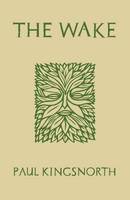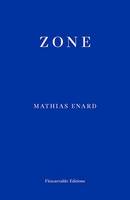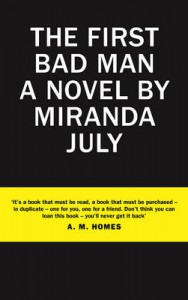Paul Kingsnorth, The Wake (2014)
Mathias Enard, Zone (2008)
Translated from the French by Charlotte Mandell (2010)
It often strikes me that, in England at least, we tend to treat history as safe and unproblematic – a source of colourful stories, perhaps; but not necessarily something that needs to be thought about much in order for us to engage with it. 1066, for example, is probably the most famous date in English history; our perception of it is likely to be dominated by a few names and images that we think we know – William the Conqueror; the Bayeux Tapestry; King Harold with an arrow in his eye. But how many of us really think about this as a lived moment in time?
 That’s a central issue in Paul Kingsnorth’s Booker-longlisted debut novel The Wake, which is narrated by one Buccmaster of Holland, a Lincolnshire freeman who first knows that ‘there is sum thing cuman’ when strange portents are seen in the sky. News of an invasion from France gradually arrives; twice, Buccmaster’s sons go away to fight – and the second time, they do not return. When Buccmaster’s house is later burned down with his wife inside, he forms a small band of fighters dedicated to resisting Norman rule.
That’s a central issue in Paul Kingsnorth’s Booker-longlisted debut novel The Wake, which is narrated by one Buccmaster of Holland, a Lincolnshire freeman who first knows that ‘there is sum thing cuman’ when strange portents are seen in the sky. News of an invasion from France gradually arrives; twice, Buccmaster’s sons go away to fight – and the second time, they do not return. When Buccmaster’s house is later burned down with his wife inside, he forms a small band of fighters dedicated to resisting Norman rule.
As a plot summary, that may not sound particularly remarkable; but The Wake is transfigured through its use of language. Kingsnorth has written his novel in what he calls a ‘shadow tongue’, a version of Old English which has been tweaked to make it comprehensible to modern readers. ‘Comprehensible’ is relative, of course; here, for example, is how the novel begins:
the night was clere though i slept I seen it. though I slept I seen the calm hierde naht only the still. when I gan down to sleep all was clere in the land and my dreams was full of stillness but my dreams did not cepe me still
So let’s be clear that, like The Luminaries and A Girl is a Half-formed Thing before it, The Wake is a novel that demands total engagement from the reader, because it is uncompromising in the vision of the world that it presents. But (again, as with those two earlier books) give The Wake space and time and it will reveal its aesthetic logic (there is a partial glossary at the back, but I managed well enough without it). Kingsnorth’s language makes his past England an alien place, brings us a character whose thought processes are likely different from our own, and makes us confront that difference. It’s a fine example of what I wrote about for Fiction Uncovered the other day, of language shaping the world of the novel.
It is also worth noting that, like The Luminaries, Kingsnorth’s novel has an acute sense of its own artifice. As the author notes in his afterword, his shadow tongue never existed; so, in a fundamental sense, the world it depicts never existed, either. What is the value of using a specifically artificial form of English? I would say that it helps to keep the past an open question: read in Old English or modern English, we might know too easily where we were (be it somewhere familiar or unfamiliar). With the shadow tongue, the door is opened just enough for us to see glimpses of understanding amidst the strangeness; we don’t know where we are, and this keeps the world of The Wake alive.
So too does Kingsnorth’s use of perception. Buccmaster frequently has visions of (and conversations with) Welland the Smith, and it remains ambiguous as to what these actually are. Kingsnorth takes his novel in directions that we may not expect of historical fiction, all the while making clear that there’s no real reason to have those expectations in the first place. Even though we may know how the story of the Norman invasion of England ends, we don’t know how the story of The Wake ends – and that’s because Kingsnorth creates the sense of a historical moment that’s alive on its own terms, where the future can still be contested.
***

Where we might say that The Wake depicts a past haunted by the spectre of the future, Mathias Enard’s Zone shows a present suffused with the ghosts of history. The novel revolves around Francis Mirković, once a mercenary, now an agent of the French secret service. For fifteen years, he has worked in the lands around the Mediterranean – a region he calls ‘the Zone’ – being involved in violence there as well as gathering information on it. Now, he is bringing that life to an end, as he takes a briefcase filled with intelligence from Milan to Rome, with the intention of selling it to the Vatican. We join him on his train journey, as he reflects on his own past and that of the Zone.
Each chapter of Mirković’s thoughts is presented as a pages-long sentence fragment (a superb feat of translation from Charlotte Mandell). The best way I found to read this was simply to jump in and let it carry me forward; there is a constant, driving momentum and rhythm to the book, like the motion of Mirković’s train. But, though the train may travel inexorably on, the novel’s overall sense is of an unending cycle, as conflicts recur throughout history, and the countries of the Zone remain scarred by the violence they have witnessed.
There’s also a thread running through Zone which concerns how lives may become reduced to memory, a text. Mirković carries the lives of war criminals and others in his briefcase; he himself has lived under several aliases, which he now intends to put away. Then there are the three chapters which are taken from the (fictitious) novel that Mirković occasionally reads while on the train. These tell of a Palestinian resistance fighter named Intissar, and are conventional in form and punctuation. Intissar’s story is serious and powerful; so it’s jarring indeed to return from her chapters to Mirković, and find him enjoying her tale as a thrilling adventure. (Ah, but isn’t that the sort of thing we do all the time as readers?) And, of course, Mirković himself is only a figure in the text of Enard’s novel… If The Wake gives a sense of deep vitality to a moment in history, Zone shows how easily history can be reduced to paper.
***
Finally, a note on the publication of these books. The Wake was crowdfunded through Unbound; having been published in the US by Open Letter Books, Zone is now the launch title of the UK small press Fitzcarraldo Editions – and I can scarcely think of a bolder statement for a new publisher to make. Publishing may be in a precarious position right now, but in many respects this is also a golden age for adventurous readers. And, while interesting books are certainly still being released by the major houses, smaller publishers play a vital role in bringing such books to our attention. I’m glad that there are novels like The Wake and Zone in the world, and that there are people who believe in them so strongly. They are right to do so.
Links
Like this:
Like Loading...




Recent Comments